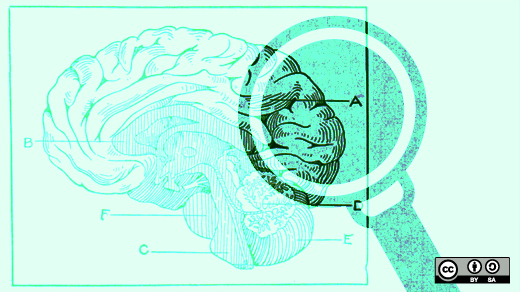Meet Doug Kim. He's a computer engineer-turned-lawyer who chairs the Intellectual Property Practice Group at McNair Law Firm in Columbia, South Carolina. Doug's practice includes patent preparation and prosecution, trademark, service mark preparation and prosecution, and securing copyright registrations in areas that include Geographical Information Systems (GIS), software, books, music, product packaging, and distribution. He has expertise in software, method, and mechanical patents as well as open source licensing.
Doug is a frequent lecturer on patents, trademarks, copyrights, and licensing, and will be speaking at POSSCON on Tuesday, April 14th. The title of his presentation is, The Law and Open Source: What You Must Know. By its very definition, intellectual property creates monopolies and 'closes' access to source and technology. Doug's presentation will focus on the collision between technology and the law and practical tips designed for the technologist on how to navigate the current legal morass.
I caught up with Doug to ask him a few questions about his background, upcoming presentation, and thoughts on the current intellectual property landscape and how it impacts open source.

You started your career as a computer engineer. Why did you decide to move into the practice of law?
During my time as a computer engineer, I was involved with sales, contract negotiations and deliverables processes. During these tasks, I was working with legal departments and reviewed contracts to determine what our responsibilities were. Quickly, I recognized that the vast majority of these contracts were “legalese” and the contracts did not do a good job of actually explaining what the project deliverables were or the responsibilities of the various parties. As the legal profession is generally filled with History, English, Political Science and Liberal Arts majors, I believe that an attorney with a technical background has a unique ability to serve and understand the IT and other tech industries. I have found that this assumption has been generally true and that drawing upon my technical background is a tremendous advantage when working with technical companies, especially in the software and IT space.
How did you first become involved in open source?
I was initially involved with open source when I was working on a large software project that another large vendor started, but resulted in a dispute. The vendor used a proprietary database and the customer was not happy about that. Therefore, I was part of a team to work on a half developed project, which required ripping out the database and replacing it with MySQL. I quickly learned the consequences of failing to fully explain the development environment and the process to the client. I also worked extensively in the retail space with Point of Sale (“POS”) systems (IBM 4680 and 4690) and most vendors used open source for API’s to allow their hardware to interface with the POS system (e.g. UPC conversion and expansion modules). In my legal career, I counsel companies to identify and reduce the risks with open source from a licensing, implementation, and management standpoint. Open source should be used intentionally, not accidentally. One need only follow the Versata! /Ameriprise train wreck surrounding XimpleWare to see how the lack of understanding with open source can be an opened Pandora’s box.
What can participants expect from your presentation at POSSCON? What topics will you cover?
During this presentation, I hope to cover several topics starting with the public policy and purpose of the current patent and copyright laws. I hope to compare and contrast these purposes and policies with the software industry and show that software development and the IT industry itself is not that well suited to fit in the framework of the current copyright and patent laws. I will then discuss in some detail the current laws and litigation and provide a background for some best practices surrounding open source and its use and consequences. I hope to conclude with tips on how not to be Versata or Ameriprise and what these cases could mean to the open source community, especially the GPLv2 world.
In your opinion, what are the three most important things a developer should look for when choosing an open source license?
First, fully understand the client’s needs and goals, both technical and business prior to the project and the selection of open source. Understanding the business model of the client is especially important so that the technical solution developed by the IT professional matches the business goals of the client. Determine a system for the management of where open source is implemented and the ability to track open source versions with application versions. If Versata had an effective system for tracking open source, it would not have been surprised to learn by an adversary that its application included open source software licensed under the GPLv2. Third, and while this may seem obvious, understand the restrictions, or lack thereof, of the license covering the particular open source material. Not all open source licenses are created equal. This includes understanding the fact that the underlying power of the open source license actually resides in copyrights; the very monopolistic vehicle that allows the open source license to be enforced (ironic right?).
What are your thoughts on current patent reform proposals (such as the Innovation Act) in Congress?
The Innovation Act is a good attempt to curb the “patent troll”, but there are consequences that can seriously undermine the small and midsized business. The patent troll and contingency based lawyer are not likely to stop bringing litigation simply because of fee shifting when the standard is “(1) the position and conduct of the non-prevailing party was reasonably justified in law and fact, or (2) special circumstances (such as severe economic hardship to a named inventor) make an award unjust.” Knowing that this is the law, agreements between the manufacturer, importer, distributor and customer attempt to shift this risk all around; but may not reduce the number of frivolous patent filings Candidly, the problems are the behavior of the patent troll (the non-practicing entity), the tactics that run up costs and the inability of law makers and courts to distinguish between genuine inventors and these trolls.
What do you think is the biggest problem in the legal framework of the US Intellectual Property system right now? How would you like to see it fixed?
It seems that the Intellectual Property system is getting away from the original Constitutional mandate to “To promote the Progress of Science and useful Arts, by securing for limited Times to Authors and Inventors the exclusive Right to their respective Writings and Discoveries.” United States Constitution, Article I, Section 8, Clause 8.
When we forget that this is the purpose, we start seeing laws that undermine the intentions of our Founding Fathers. For example, when the United States went to a first to file, rather than a first to invent, we forgot to amend the Constitution to Read "To promote the Progress of Science and useful Arts, by securing for limited Times to Authors and Inventors those that make it to the Patent and Copyright Office first the exclusive Right to their respective Writings and Discoveries." When we allow for the legal system to accept the activities of Patent Trolls, it results in "To promote the Progress of Science and useful Arts, by securing for limited Times to Authors and Inventors the exclusive Right to have non-practicing entities make money off of their respective Writings and Discoveries." What’s the Answer, when laws, regulations and judging behavior in a court room, start with "To promote the Progress of Science and useful Arts."
With this framework it should be difficult to reward the patent troll, overly broad software patents and most all business method patents. CLS Bank v. Alice is a step in the right direction.
Speaker Interview
This article is part of the Speaker Interview Series for POSSCON 2015. The Palmetto Open Source Conference is a technical conference focused on open technology and the open web. POSSCON takes place in Columbia, SC from April 14-15, 2015..







2 Comments